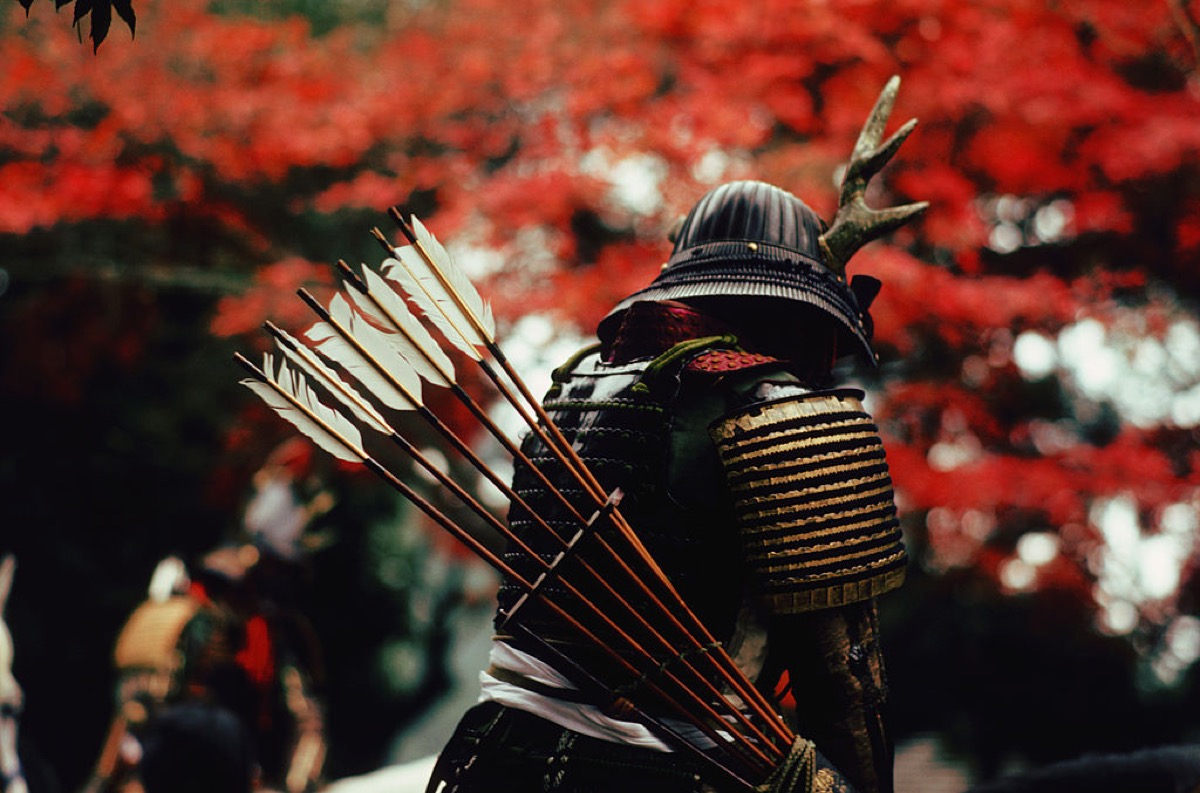Citing ‘Yellowface’ Novel, White Author Defends Writing Japanese Historical Fantasy
Another white person writing about Samurai. Of course.

Diversity and representation are important in media, as we frequently highlight here at The Mary Sue. However, analyzing the privilege white writers have when telling stories about cultures and races that are not their own is equally important.
Photographer and Writer Natalie Jacobsen (not the television anchor) recently announced her debut novel, a “Samurai historical fantasy,” slated for publication in Fall 2024. Jacobsen is not of Japanese or Asian descent but stated on her website that she “jet-set to Tokyo, Japan, where the city acted as [her] main muse for six years.” Since the announcement, she received pushback from writers and readers, including many Japanese American writers.
In response to the critique, Jacobsen stated she’s working with a Japanese American editor, has shown the work to sensitivity readers, and linked a Guardian article about Rebecca Kuang’s novel Yellowface.
Unfortunately, Jacobsen has made her Twitter account private, making it difficult to tell which Guardian article about Yellowface was the one she was citing, as there were multiple articles that fit that description in May of 2023. However, context clues point to it being either the article about how Rebecca F Kuang rejects idea authors should not write about other races or Rebecca F Kuang: ‘Who has the right to tell a story? It’s the wrong question to ask.’ Both articles discuss the rights of storytellers to tell stories about races and cultures not their own.
The problem is that, of course, Jacobsen appears to have not read or fully understood the articles in question, as while Kuang talks about writers being pigeonholed into only writing about one thing, she also rejects the narrative that it’s somehow easier to get published as a BIPOC author now. It’s especially ironic for Jacobsen to cite Yellowface to defend herself when the novel is about a white woman publishing a dead Asian woman’s work as her own and highlights both “how marginalized authors and staff are ignored, belittled and underpaid” and how “[t]here is no singular Asian American experience, and studying Asian Americans just means studying all of those different waves of migration.”
The novel also covers the many layers of privilege and prejudice in the publishing industry that are barriers for new and upcoming authors, with the publishers being the ones who decide whether a book will be a hit or not. Publishers effectively control both supply and demand, which is an imbalance that the industry is still grappling with.
What especially sucks is that even the backlash contributes to giving more attention to Jacobsen, rather than to Asian American authors, such as Kylie Yamashiro, who is also writing a Japanese fantasy novel.
Jacobsen appears uninterested in understanding how her privilege factors into her ability to respectfully represent a marginalized group to which she has no direct connection. Her photography website also features instances of exotifying or otherwise appropriating Japanese language and imagery, with the first page of her website featuring pictures of a white couple strolling through Asian buildings and the main text being “木漏れ日 ko•mo•re•bi Although oftentimes blinding, the smattering of sunlight that leaks through the green, summer foliage is remarkably and undeniably beautiful.” Honestly, it’s a pretty apt metaphor for Jacobsen’s whole creative endeavor: Asian art and culture through her very white lens.
So, does this mean that no one can write outside of their own race/experiences? Of course not. Rebecca Yarros is a good example of a white writer who is working against racism in writing, fiction, and fandom, only sharing fan art that doesn’t whitewash her leading male character.
However, when writers are representing other cultures, they need to reflect honestly on their reasons and ability to do so.
Writer Maggie Chang offered the following questions for reflection:
“1. Why do I feel like this is my story to tell?
2. Will this book benefit actual Japanese people more than me in terms of wealth and/or power?
4. How am I helping or making space for actual Asian authors who are being gatekept out of the industry, or am I simply taking up their space?”
https://twitter.com/seethewaymcs/status/1671618026414768129
Chances are, if your reasons are more self-serving or if your understanding of the culture is only perfunctory, then chances are, you’re not an ally but a self-assigned white savior, and we definitely don’t need any more of those in publishing.
(featured image: Ernst Haas/Contributor/Getty Images)
Have a tip we should know? tips@themarysue.com